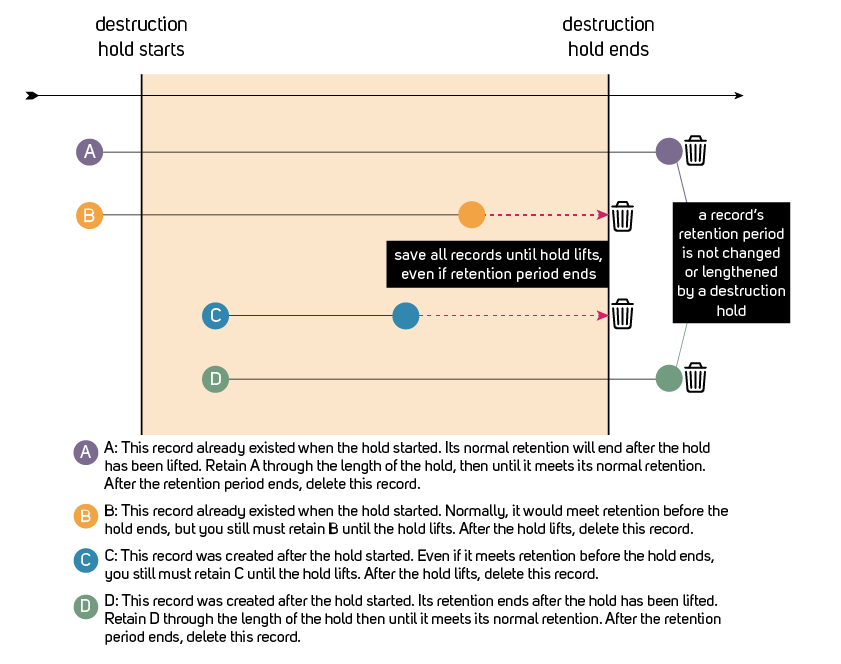If the messages are sent, received, and archived in connection with the transaction of University business they are considered a public record; therefore, they should be retained using an approved UW Records Retention Schedule
Retention is based on the purpose of the listserv and the content of the emails. Most listserv messages are transitory and can be deleted once their reference purpose is served. Messages like those containing final recommendations or approvals for actions taken, on the other hand, must be retained for 6 years.
Because UW-IT deletes archived messages from Mailman after only 2 years, those messages which have continuing retention requirements should be transferred to another storage location such as a network drive, or SharePoint site. This is also true for any messages which may be needed for an audit, litigation, or public records request as they must be retained until the action has been resolved. Once there is no longer a legal, fiscal, or administrative need to retain these saved messages, they should be deleted from their storage location.
For more information, refer to the Mailman Data Retention Policy.
